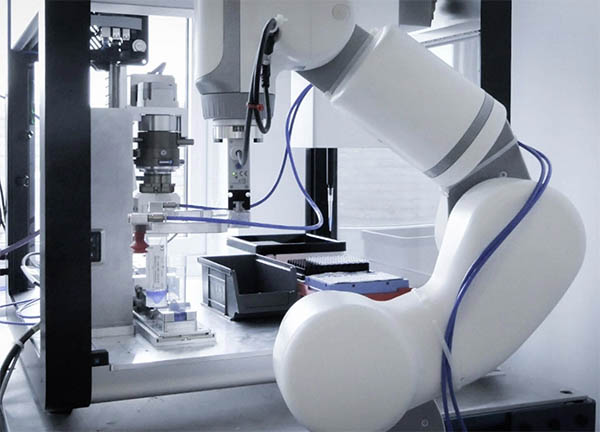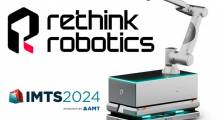The COVID-19 pandemic has brought new attention to the need for laboratories to add automation at scale. Automata, which serves the life science industry with lab automation and the Eva robotic arm, this week said it has raised $50 million in Series B funding. The London-based company said it plans to use the funding to continue development of its offerings for scientists working across diagnostics, drug discovery, and biotechnology.
“At Automata, we have always believed in the power of automation to support a variety of uses especially when deployed at scale,” stated Mostafa El Sayed, CEO of Automata. “We are thrilled to see our users adopt automation at a scale that transforms their ability to deliver more innovation in the life sciences to ultimately accelerate their pursuit of progress.”
Automata said it helps life sciences rapidly innovate, diagnose, and discover at scale. The company said it has helped scientists and clinicians conduct nearly 1 million tests in recent months.
Automata Labs helps NHS conduct tests
Automata said that its technology enables life scientists to obtain accurate laboratory results faster and spend more time on their analyses. This can also lead to cost reductions, it said.
“For far too long, scientists and clinicians have been having to work with overly complex lab solutions. Equipment and software are disjointed and difficult to orchestrate, while solutions are often too rigid and inappropriate for labs with small geographic footprints,” he added. “Our next-generation technology solves this.”
For instance, the U.K.'s National Health Service (NHS) has used Automata's systems to help meet diagnostic backlogs and upscale capacity. In one of its labs, scientists are running 40 fully automated stations 24/7, said the company.
Automata said it is also currently advising and deploying automation with contract research organizations, research labs, and leading blue-chip healthcare institutions.
Octopus Ventures leads funding round
Octopus Ventures led Automata's Series B round, with participation from returning investors Hummingbird, Latitude Ventures, ABB Technology Ventures, and Isomer Capital, as well as strategic investors such as In-Q-Tel.
“Automata's robotic capabilities are truly the first of its kind, and the company has combined this with deep expertise in automation and a highly effective business model which has created a leading edge over competitors,” said Jess McCreadie, principal for healthcare technology at Octopus Ventures. “Automata Labs accelerates human ingenuity, empowering labs and scientists to achieve consistent results faster, on a greater scale, and to ultimately upscale their ambitions.”
Octopus Ventures said it supports innovators, from ideas on a page through to initial public stock offering (IPO). The firm, which has offices in London and New York, invests more than £200 million ($266 million U.S.) across healthcare, financial technology, deep technology, consumer, and business-to-business (B2B) software.
Octopus Group manages more than £11.3 billion ($15 billion), including funds under advisory mandates and the Octopus Cash service as of Sept. 2021 on behalf of retail and institutional investors. It has backed companies such as BoughtByMany, Cazoo, Depop, Elvie, and WaveOptics. It said its energy supply business has reached 2.5 million customers in five years.
Article topics
Email Sign Up
















